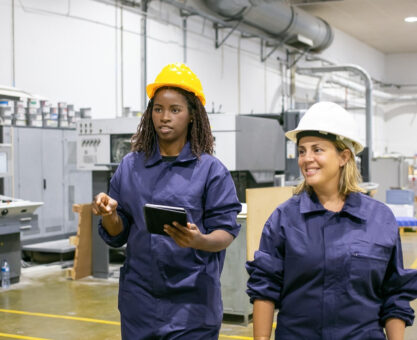Establishing a knowledge base is a strategy that can yield numerous benefits for a field service organisation and once the initial pain of setting it up is accomplished it can become self-perpetuating. One company that have adopted this approach is medical device manufacturers Elekta…
The devices Elekta manufacture deliver radio therapy treatment for cancer care and are one of the leaders in the niche field of image guided radiotherapy. Devices such as a linear accelerator that delivers extremely accurate radiation used in sterotactic treatment for tumours are a core part of their product line. These devices capable of delivering are very high precision, sub millimetre accuracy radiation.
As you can imagine these are highly complicated devices with many modalities and while they have many computer systems and software applications controlling the treatment planning systems and oncology information system, there are obviously a lot of electronics mechanics and pneumatics within the device as well as a vacuum system and of course a way of generating radioactivity in a very controlled way.
So Elekta’s field engineers tend to be extremely smart folks. Many of them are actually physicists, or bio-science graduates with PHDs and it takes a long time to train an engineer, from a relatively high level of knowledge in the first place, through to becoming competent engineers who can resolve all of the problems that might occur on such a sophisticated type of devices.
This of course means that training engineers can be a long and challenging process. This is becoming a particular challenge in the developing markets of Asia Pacific and Latin America, where unfortunately due to the prevalence of Cancer there is an on-going struggle to keep up with developing enough engineers in order to be able to support the growth of product sales.
Especially in rapidly growing markets like China and Brazil.
Of course for a company in such a situation the efficient training support of the engineers, becomes extremely important.
“An important challenge for Elekta has been around the tackling the questions ‘how do we share knowledge around the whole service organisation?’” revealed Elekta Senior Vice President of Service, Martin Gilday during a recent presentation at a meeting hosted by UK non-profit group the Service Community.
It was clear that this issue had to be addressed and having recently implemented a new service management application, Gilday and the team at Elekta took the opportunity to establish an automated knowledge management solution.
“Prior to deploying that system we did have a number of ways of sharing knowledge which the engineers basically developed themselves but it wasn’t truly shared. It may have been shared amongst smaller groups of engineers but it certainly wasn’t a solution that worked on a global basis.” Gilday admitted.
With the complex nature of some of the problems Elekta’s engineers face there is of course a huge amount of value in being able to share some of that analytical and corrective maintenance activity across the organisation. Fortunately for them, this was acknowledge amongst their engineers also and they were a big part in Elekta’s drive to share knowledge across the group on a more efficient and systematic level.
“There was a real clear message from the field that the engineers wanted the opportunity to share information with their peers and to learn from other parts of the organisation, helping each other develop.”[/quote] As Gilday explained “There was a real clear message from the field that the engineers wanted the opportunity to share information with their peers and to learn from other parts of the organisation, helping each other develop.”
This pull from the field engineers was a real plus for putting an effective means of sharing knowledge across what was not only a global workforce but also one with differing knowledge requirements.
Elekta’s service organisation’s maturity growth is closely aligned to that of the healthcare sector as a whole. The most mature area of the world being the United States, where devices tend to be top end machines, with maturity essentially declining somewhat as you go east.
In countries such as China, Malaysia, and India while they have a big need, the devices most commonly installed tend to at the lower end of the spectrum in terms of sophistication. This is partly because healthcare clients in these areas are often developing the skills for their own clinical teams.
So the aim for Elekta was to share the knowledge they could extract from those who were really experienced in seeing the more sophisticated problems and then be able to share that with other parts of the world.
“When we started looking at it there were many, many sources, which were all manual sources of knowledge across a different systems and not really achieving what we wanted.” Gilday explained
“So the objective was really to enable all of the Elekta service engineers to be able to access service knowledge for any particular product, at any time.”
No mean task, and one that was further compounded by the nature of the market they operate in.
Unlike many industries where there is a pull from the customer side for global consistency, i.e. international customers expect the same customer experience in the UK as they get in the US as they get in the Nordics. In healthcare this typically doesn’t happen.
Healthcare solutions are usually country based and a direct result of this was that Elekta had three independent business units. So there first action needed to pull these together to form a global perspective.
“The first thing was to establish an overall project leader who was going to pull together a common way of doing things.” Gilday outlined
This involved establishing standard knowledge processes and also importantly the format of the knowledge articles themselves, essentially a one-page document that could be viewed electronically which really described what the problem was, and any advice that the knowledge provided. With this structure in place things could begin to move forward.
However, getting this right from the outset was a key ingredient in mitigating future issues according to Gilday.
“The format itself was pretty simple” he said “ What is the problem the knowledge articles are addressing, what is the solution or advise that is being given and what product is the article about. Pretty simple stuff you might think, but it is so important to get that right in order to share it with as many people as possible. “
“Bearing in mind we are dealing with engineers from all over the globe, we were really trying to take the knowledge available and put it into a standard format, a relatively simple format that could be used in all countries. Knowledge is only any good if people really see the benefit and want to pull that out and can use it easily. “ He added.
Look out for the second part of this feature where we look in detail at the logistics of how Elekta approached this task…


















